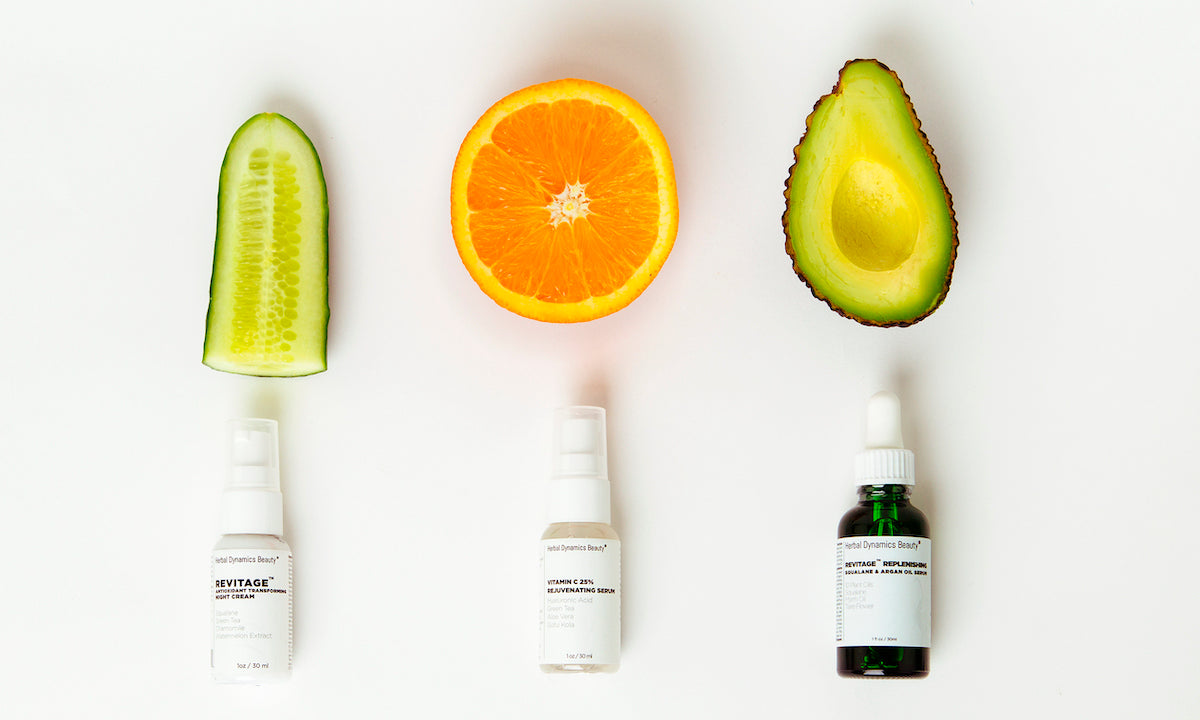Your Cart is Empty
FREE SHIPPING on US orders over $45. Save 25% With Code TAKE25 at checkout.
FREE SHIPPING on US orders over $45. Save 25% With Code TAKE25 at checkout.

Entering the world of clean beauty can seem complicated (so. many. labels.), but the beautiful thing about clean beauty products is that they’re just as effective as their conventional counterparts. The only difference is that they’re made without ingredients known or suspected to harm human health. There’s no compromise to be made anymore — especially with products you put on your face and body every single day.
If it seems daunting to completely revamp your beauty regimen, remember this simple rule: start with products you leave on and use daily (deodorant, sunscreen) or could possibly be ingested (lipstick and other lip products).
Here are five product categories we suggest starting with to clean up your beauty routine — along with some of our all-time favorite clean beauty products!
For years, rumors have swirled that there’s a solid link between aluminum antiperspirants and breast cancer. Although that may not be proven, what is certain is that most chemical antiperspirants are made with aluminum-based compounds that block up our sweat glands so toxins can’t escape.
Some studies suggest that these aluminum compounds may be absorbed by the skin and have estrogen-like (hormonal) effects. Because underarm deodorants are applied frequently and left on the skin near the breast, some scientists and others have suggested a possible connection between aluminum-containing antiperspirants and breast cancer.
Another recent study found that women who used antiperspirants or deodorants had higher concentrations of aluminum in their breasts and were at higher risk of breast cancer. However, the results did not prove that antiperspirant was the only relevant route of aluminum exposure (so breast cancer may be linked to aluminum, but not to antiperspirant use directly).
According to the National Cancer Institute, there is no scientific evidence currently linking the use of these products to the development of breast cancer.
Ultimately, more research is needed to determine whether a relationship exists. In the meantime, there are tons of aluminum-free antiperspirants and deodorants on the market.
We recommend: EWG’s Skin Deep cosmetics database as a great place to find safer product recommendations and more information on potentially harmful ingredients.
Sunscreen is the #1 anti-aging product on the market, so finding a non-toxic formula for daily use should be at the top of your swap list. Chemical formulas actually contain some of the most toxic ingredients in the beauty industry (read more about chemical vs. mineral sunscreen here).
Chemicals to avoid: oxybenzone, octinoxate, homosalate, octisalate, octocrylene, and avobenzone. Several of these chemicals appear to be endocrine disruptors, which means they can mimic the hormones in your body and contribute to developmental, reproductive, brain, immune, and other health problems.
Better options: products that contain zinc oxide or titanium dioxide, the only FDA-approved mineral filters that provide strong sun protection with few health concerns and don’t degrade in sunlight.
We recommend: Mineral-based sunblocks with non-toxic, reef-safe ingredients.
Many conventional moisturizers contain all sorts of filler ingredients, preservatives, and other chemicals your skin doesn’t want or need. Swapping to a clean, non-toxic moisturizer could reveal your healthiest complexion ever!
Of course, the best clean moisturizer for your face will depend on a variety of factors: your skin type, top skincare concerns and goals, budget, personal preference, and the season or climate you live in.
For more on choosing the right moisturizer (and other clean beauty products), read our guide to choosing the best products for your skin type.
We recommend: Youth Refresh Prickly Pear Antioxidant Daily Moisturizer
When it comes to cleansers, the #1 ingredient to avoid is SLS (aka sodium lauryl sulfate), which is an additive commonly used to give products a foamy, bubbly consistency. SLS is a known skin irritant and can be especially harsh on the eyes.
In addition to facial cleansers and other personal care products, SLS can also be found in a number of industrial cleaning agents like engine degreasers and industrial strength detergents.
According to most research, SLS is an irritant but not a carcinogen (meaning studies have not shown a link between SLS and increased risk of cancer).
Still, if you don’t like the idea of washing your face with industrial strength detergent (we’re with you!), we recommend switching to a formula that uses a natural foaming agent like sugar or coconut. These blends will provide a safe, effective cleanse without stripping away vital nutrients or irritating your eyes.
We recommend: Clean & Calm Gentle Rosehip Foaming Cleanser
If you can’t pronounce all of the ingredients in your lip products, it’s time to switch. Afterall, lip products tend to get eaten.
Since the amount we ingest is significant, choosing clean lip products is especially important. Luckily, there are hundreds of clean lip products made with safe, organic, natural ingredients. Here are some of the best natural ingredients to look for on the label:
We recommend: LipSoothe Volumizing Lip Scrub & Mask Duo